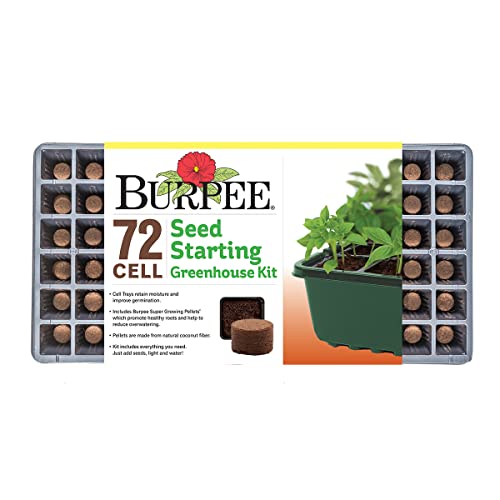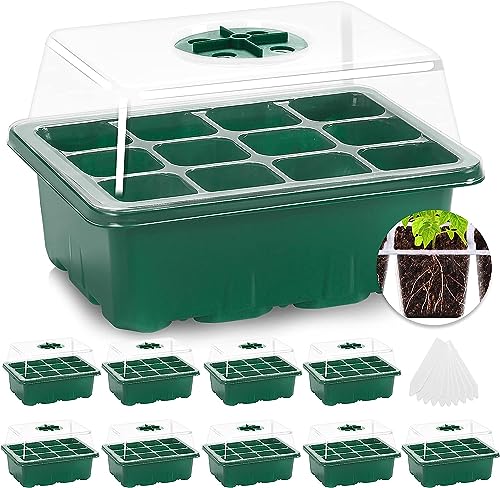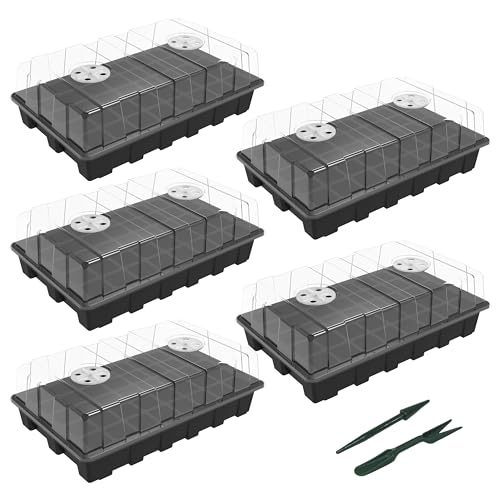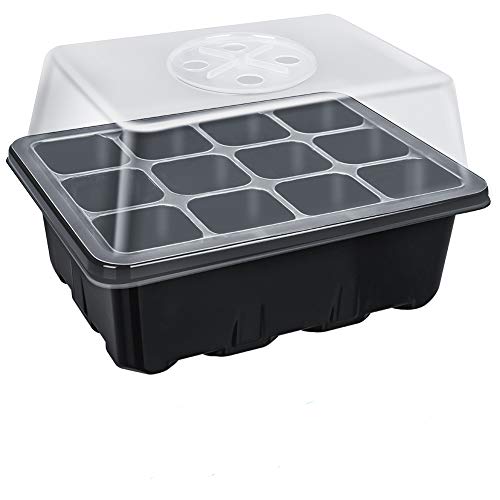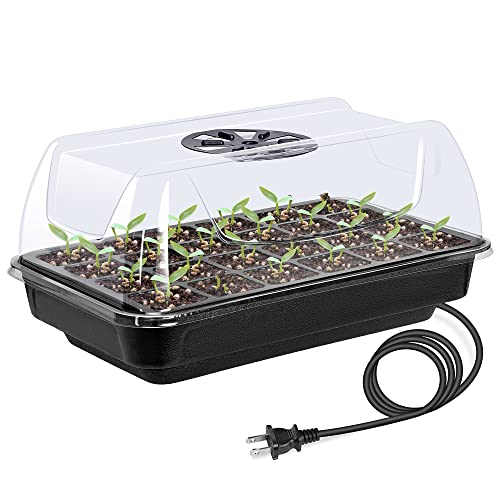Embarking on the journey of cultivating your own garden from seeds is a gratifying endeavor that promises the joys of witnessing life sprout from tiny beginnings. However, for seeds to flourish into vibrant plants, they require the nurturing care facilitated by the right tools and environment. This is where seed starting kits come into play, serving as indispensable companions for both novice and seasoned gardeners alike. In this comprehensive guide, we delve into the realm of seed starting kits, exploring their features and benefits. Among these, Burpee offers the best seed starting kit, renowned for its quality, reliability, and ability to facilitate successful seed germination and plant growth. Selecting the ideal kit is the first step towards cultivating a thriving garden.
Our Top Picks For Seed Starting Kits
- The Best Seed Starting Kit: A Buying Guide
- People Also Asked
- Does a seed starting kit include germination trays, soil pellets, or humidity domes?
- What is the best way to store unused components of the seed starting kit?
- Does a seed starting kit come with nutrient-rich soil mixes for growing seeds?
- How long will it take for my planted seeds to germinate?
- How much water should I give my newly planted seeds?
- Related Articles
The Best Seed Starting Kit: A Buying Guide
When shopping for the perfect seed staring kit, numerous factors must be considered. The following factors can ensure your success when growing your plants. Check out this buyer’s guide to ensure that you make the right purchasing decision.
Price
The seed starting kit’s price varies depending on the quality and type of materials used. You might be able to pay less for a low-quality kit. However, a more expensive seed starting kit cannot always guarantee the desired results. Consider buying from a reliable, reputable seed starter company. Ensure the company guarantees high quality and good customer service. Look for kits that reasonably price the products based on what you receive.
Quality of Materials
When looking for the right seed starting kit, you should consider the type of materials and the quality of them. Make sure you look for durable, reusable materials that won’t break easily or deteriorate over time. High-quality materials, such as heavy-duty plastic trays and containers, can provide long-term use. Make sure you think about whether or not the kit comes with materials that will keep your plants adequately warm in the early stages of growth.
Number of Trays and Pots
The number of trays and pots that come in the seed starting kit should be enough to house all of the seeds you want to plant. Check to see if you can purchase additional trays if needed. Some kits offer customizable options. This can allow you to choose different numbers of trays based on your needs.
Ease of Use
The size, shape, and depth of the tray or pot are essential details to consider when shopping for a seed starting kit. You should look for a kit that comes with trays and pots that are easy to use. Make sure you can easily fill them with soil. The shape and depth should make it possible for you to fit the pots or trays on windowsills and shelves. Make sure these locations can provide optimal conditions for seeds to germinate and thrive as well.
Soil and Compost
The quality of the soil is an essential factor to consider when determining which seed starter kit is right for you. Look for kits that include nutrient-rich soil or compost. These can help the seeds successfully germinate and grow into vigorous plants with healthy harvests. Ensure you also check if additional soil amendments or fertilizers are included in the kit for added nutrition.
Types of Seeds
The types of seeds included in the seed starter kit will depend on where you purchase the kit from and what type of kit it is. Some examples include annuals, vegetables, and herbs. Check to see if you will need any additional seeds to complete your garden setup. Consider whether the kit includes rare or heirloom varieties of seeds. That way, you can add something unique to your garden this season.
Additional Accessories
Some kits won’t always include all the items you need. If that’s the case, you might have to buy them separately. Peat pellets provide extra warmth and insulation during cooler weather. On the other hand, seedling marking sticks offer an easy way to track progress over time. Plus, they can do without disturbing valuable crops during their growing process.
Instructions for Using and Growing
To ensure successful outcomes when sowing seeds with a seed starting kit, make sure the kit comes with comprehensive instructions. This will ensure that every step in the seeding process is carefully and correctly completed. That way, your plants will grow as optimally as possible. Look for other helpful resources, such as instructional videos or online communities that offer helpful advice when using your seed starter kit.
Durability and Portability
Durability is essential when choosing which seed starter kit is right for you. Since the kit will be exposed to different environmental elements both indoors and outdoors, these details are vital to consider. Look for products made from heavy-duty materials that can withstand long periods of usage and uneven surfaces over time. It’s important to make sure they won’t become brittle or unreliable in the process. Seek out options with portable designs. They are beneficial in situations where you move around frequently while gardening outside.
People Also Asked
Does a seed starting kit include germination trays, soil pellets, or humidity domes?
Most standard seed starting kits include germination trays, soil pellets, and humidity domes. All three of these features help create an ideal seed-growing environment.
What is the best way to store unused components of the seed starting kit?
The best way to store the unused components of a seed starting kit is to keep them in a cool, dry place. This will ensure that they are not exposed to direct sunlight or extreme temperatures.
Does a seed starting kit come with nutrient-rich soil mixes for growing seeds?
Most seed starting kits do not come with nutrient-rich soil mixes. However, they might include pre-packaged nutrient supplements that can be added to the soil to provide essential nutrients to your plants.
How long will it take for my planted seeds to germinate?
The time it takes for seeds to germinate will depend on the type of seeds you're working with and the environmental conditions. In general, it typically takes anywhere from two days to two weeks to germinate.
How much water should I give my newly planted seeds?
When watering newly planted seeds, it is important to provide them with enough moisture. However, do not over-water them. Aim for anywhere from a quarter cup to half a cup of water per day. This should be plenty of water to provide adequate moisture for your plants.




